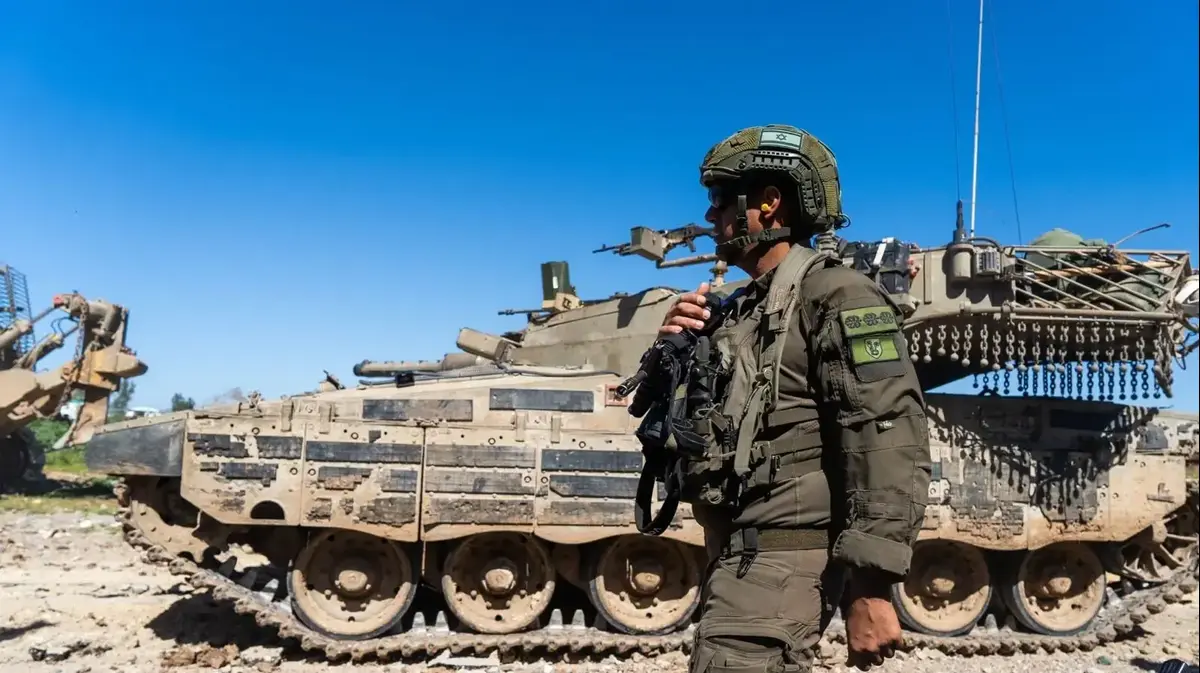About a year ago, the Avraham agreements were signed, marking a breakthrough in changing relations between Israel and large parts of the Sunni Arab world. Although the historic process has slowed down after four peace agreements with the United Arab Emirates, Bahrain, Morocco and Sudan, and especially after the change of government in the US and Israel, the expectation that more Gulf states will follow has not faded. Many commentators continue to gamble Oman, or maybe even Saudi Arabia, but few pay attention to the new entity interested in joining the move - Ahuaz.
Do not rush to take the atlas out of school days to find this name in the list of countries of the world. Ahuaz will not appear in it. But if you look at the map of Iran, you will find in its southwestern corner, on the shores of the Persian Gulf, Khuzestan, a small area that now serves as one of the 31 provinces that make up the Islamic Republic. Unlike the other provinces, Khuzestan and the surrounding areas are mostly populated by Sunni Arabs who call their homeland Ahuaz. Like other minorities in Iran, they too suffer from discrimination and oppression, and seek to shake off the central government and establish an independent state.
Until 1925, the province was a de facto independent Arab emirate, under the rule of Sheikh Khazel, although it was formally part of Iran. It has since been denied its practical independence, and after the Islamic Revolution, repression by the Persian government has increased. The central government worked on a variety of methods to reduce Ahuaz's cultural and ethnic identity (the ban on teaching the Arabic language was one of them), and at the same time sought to bring about a change in the demographic composition of the region's population. Residents of Arab descent were expelled from it, and Iranians of Persian descent were brought in their place.
The response of the residents of Ahuaz to the hostile treatment was demonstrations, but these were severely suppressed. In the late 20th century, a group of educated Arab activists, unable to sit idly by in the face of what they saw as blatant injustice, formed the "Arab Front for the Liberation of Ahuaz," which was soon labeled by the Tehran government as a terrorist organization and treated accordingly.
In 2005, the quiet demonstrations of the residents of Ahuaz turned into violent riots. Regime forces did not maintain restraint: more than 20 protesters were killed, thousands arrested and tortured, which did not prevent the ayatollahs from blaming the scenario for what they claimed was British incitement, in which many of the Ahawi resistance leaders found refuge. In response to the regime's violence, Ahawi's activists identified with the "Arab Front for the Liberation of Ahawaz" carried out a series of attacks on Iranian government targets in the province, leaving the movement with no choice but to flee to Europe, from where they continue to draw attention to the ongoing suffering of their Iranians.
"The Arab Front for the Liberation of Ahawaz wants to gain independence and extend a hand of peace to Israel," explains Said Hamidan, the new president of the Front, in a conversation with Israel Today. "We are interested in cooperating with Israel in all areas for the benefit of both sides "Between Ahuaz and Israel. You will find in the independent Ahuaz an ideal partner for cooperation and coexistence."
A million victims
Hamidan emphasizes the Semitic identity of the inhabitants of Ahuaz, and the historical connection between them and the Jews, whom he calls "brothers" and "cousins."
The ruins of Shushan, the capital of the empire mentioned in the Book of Esther, are located in Bahouz, and according to Hamidan, the area is steeped in remnants of Jewish heritage from thousands of years ago, including the tombs of prophets.
Equally important, Hamidan argues, is the fact that Ahuaz's population is young, open, friendly, secular and liberal, and looks sympathetically towards the West and Israel. In the past, the "Arab front of the struggle for the liberation of Ahuaz" was linked to the ideology of the Ba'ath party, which ruled nearby Iraq and was apparently happy to undermine the hostile government in Tehran through the Ahuazis. After the overthrow of Saddam's regime, there were many reports that Saudi Arabia had become the main supporter of the "Arab Front for the Liberation of Ahuaz," and the Iranians clung to it to explain to the world that the Ahuazi issue was sucked out and undermined the region's aspirations for freedom. But the changes in the world, led by the refreshing breeze of the Abrahamic Agreements, led the leaders of the Ahawazi independence movement to seek allies in the Jewish state.
Messages of peace and brotherhood towards Israel may make you enemies. Are you worried about your personal safety?
"We know our names are on the Iranian assassination lists, and as we know they have no inhibitions or restraints of morality or humanity, they are just murderers. In this area too we need the support of Western governments to face the danger because Iranian agents are everywhere. They use In other nationalities, such as Africans and Hezbollah members, Ahmed Mullah Nissi, the founder of our movement, was assassinated by Iranian agents in the Netherlands.
"The Iranian arsenal has other methods of harming the regime's opponents, and they use them against us, against Kurdish activists and against other freedom seekers. For example, Habib Assyud, another former president of our movement, was fraudulently persuaded to come to Turkey and from there abducted to Iran. "They are spying for the enemies of the republic, such as Saudi Arabia. Such false accusations have been falsified in relation to Habib Jaber and have been handed over to the left - wing ruling party in Denmark, which has led to his incarceration."
What is the situation in the Ahuaz area these days?
"Since 1925, the Ahuaz area has seen 22 uprisings against the Iranian regime and protests have not stopped, although we estimate about a million people have sacrificed their lives over the years. Even then, with the rise of Ibrahim Raisi to the presidency, there are demonstrations in Bahouz demanding human treatment and independence.
"We have no illusions about the new president. , But he will not succeed in stifling the desire for freedom and independence.
For decades the Ahuazi story was silenced.
No more!
"If a referendum were held there, the vast majority would choose an independent path, the victim required for its protection would be whatever it is."
False accusations.
Hamidan // Photo: Ahwazna TV,
independence?
Everything is built from scratch
Hamidan can tell a lot about the sacrifice (in 2006 he was banned and subjected to a series of tortures), but he prefers to look to the future and asks Israel to understand and support the Ahuazi struggle. Dr. Halaf Alkebi, head of the Foreign Relations Committee of the Arab Front for the Liberation of Ahuaz, adds that such support could change the entire balance of power in the Middle East. It would be great, he says. The probability of such a scenario can be debated, but it is clear that it frightens the regime in Tehran.
"God created us equal, regardless of color or religion, and therefore deserves to support us on the basis of humanity and human dignity," Al-Qaabi said. "Non-Persian minorities in Iran, such as the Kurds, will welcome such a development. In order for independence to be achieved, the international community needs to understand who we are facing. Perhaps US President Biden will be able to change his approach to the Iranian regime."
Hamidan and Al-Qaabi point out that their homeland is rich in oil and gas deposits, which are being used today for the purposes of the Iranian government without the residents of the region enjoying the fruits of wealth.
They hope to use the South Sudanese precedent, noting that even before South Sudan split from the mother country and gained full independence, its oil buyers were persuaded to make direct purchases for its purchase with separatist forces, not with the central government in Khartoum.
The ayatollahs in Tehran will probably not even agree to think about it, but the very raising of the issue of oil and gas is hurting their soft bellies.
"Most of Iran's oil and gas resources are located in Bahá'ís, and are now being stripped of its holdings. China now has most of the Islamic Republic's oil wells and almost all of its Islamic wells. , Dr. Alkebi specifies and hints that his future country will not lack revenue.
Civilian infrastructure, on the other hand, will be sorely lacking, because it is certain that when the central government folds and leaves Ahauz, it will leave behind scorched earth: "We will have to build civilian systems from scratch - schools, universities, roads, factories. I hope our friends around the world "In the United States" will help us then establish a state infrastructure, as I ask them to help us now in creating a sympathetic public opinion in relation to our pursuit of freedom. "
National liberation is usually not achieved only through the sympathy of public opinion overseas. Are you continuing an armed struggle against Iran?
"In the past we had a military wing, and we had to freeze its activities due to many political changes, partly due to lack of support - not even from our Arab brethren in the Gulf states, who were shrouded in silence even when the Iranians committed mass killings and brutal actions against Ahuaz residents. And the criminals of Hamas, an Iranian-backed organization that is driven by hatred and a desire to destroy, they harm, attack and kill innocent people in Israel.
"One day, in the coming months or years, depending on the availability of the means at our disposal, there will be no choice but to reactivate the military force against the Iranian government, you know it and its inhumanity. However, we do not ask for anything beyond political support "Non-military, silent demonstrations, even though the Iranians are known to attack the protesters, arrest and torture their participants. They are simply slaughtering our people indiscriminately. The world deserves to respond harshly to these Iranian crimes."

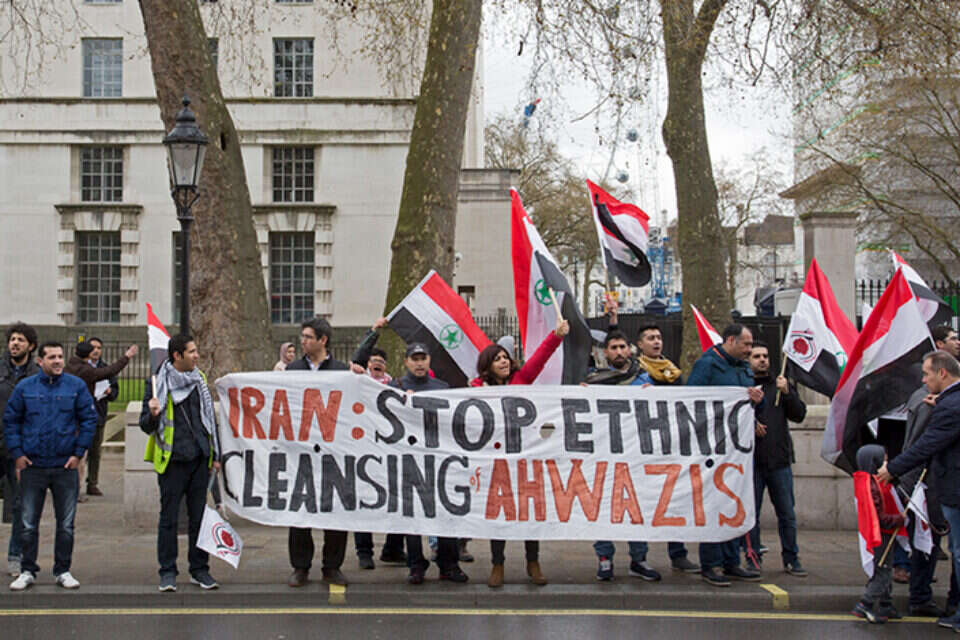

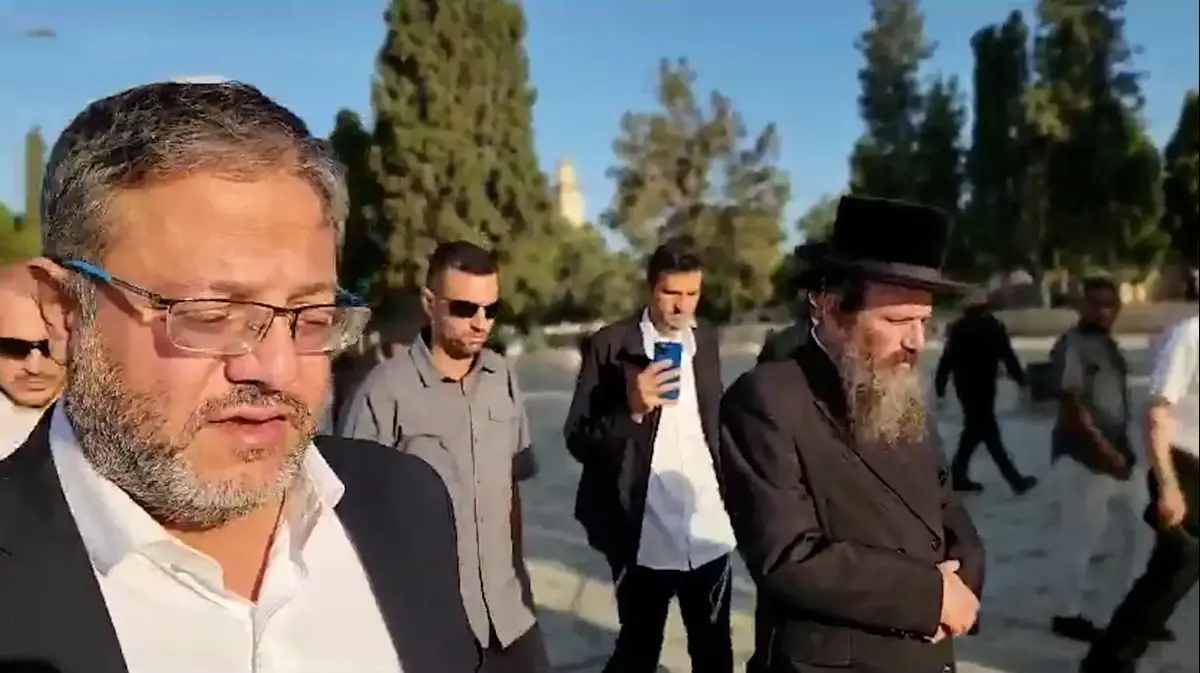
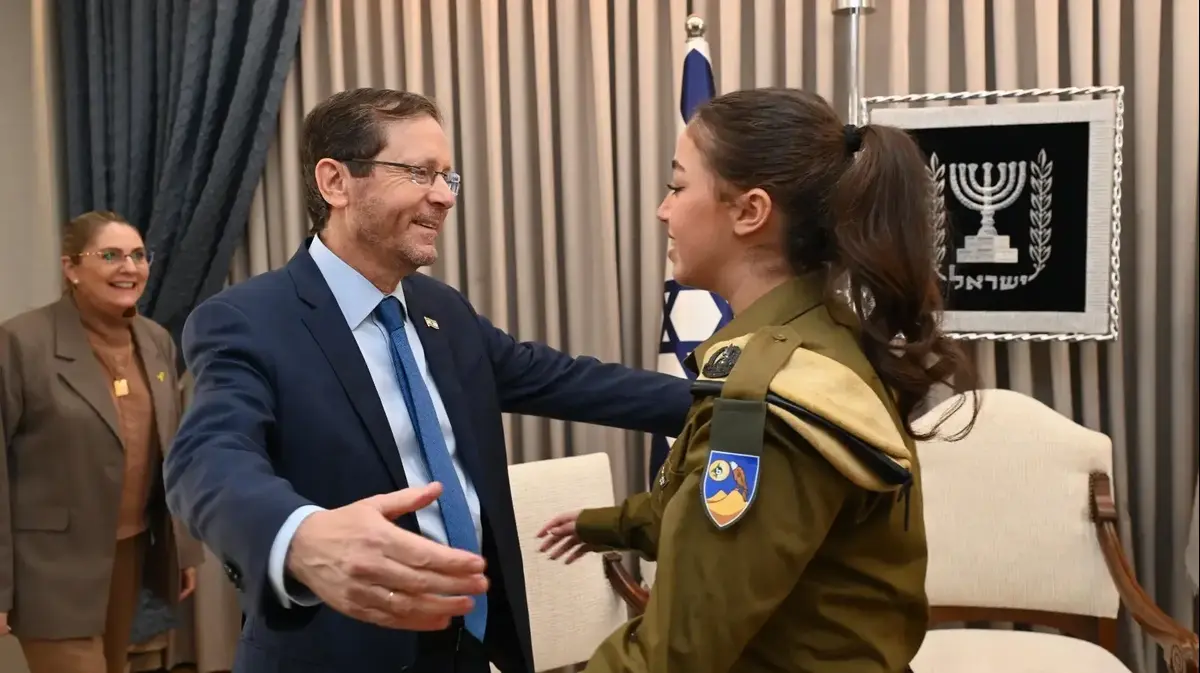
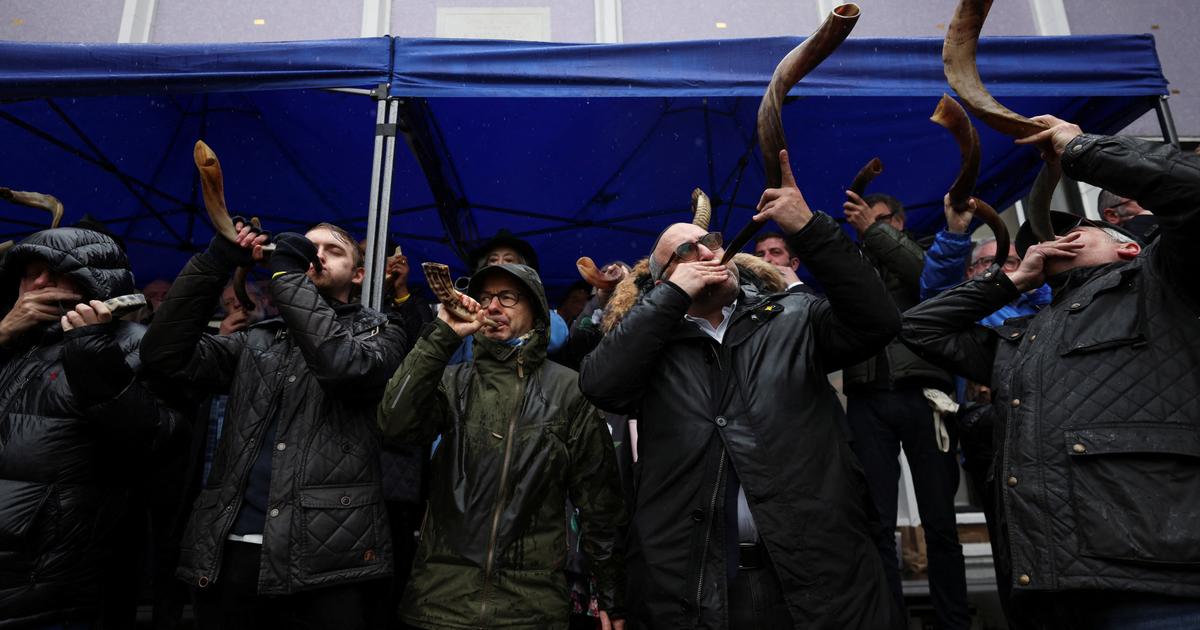

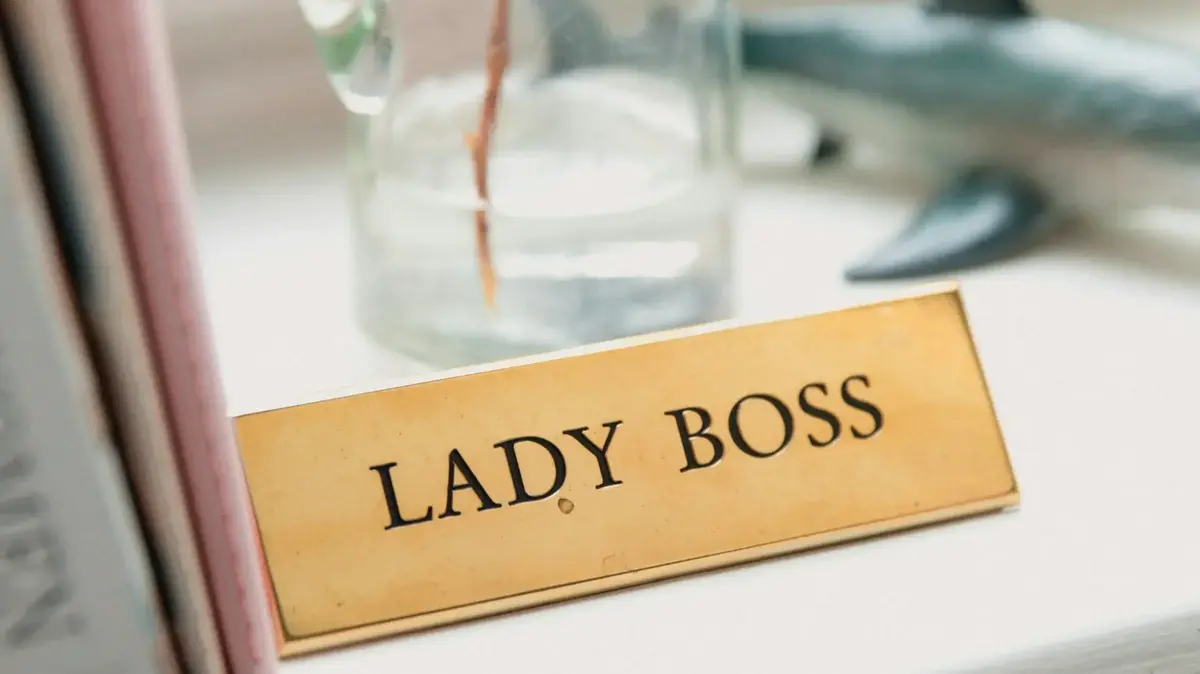
/cloudfront-eu-central-1.images.arcpublishing.com/prisa/YVK4HZAFDKHYPX5IOZ5XKJSHDA.jpg)
